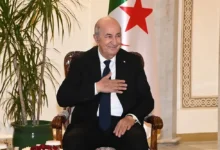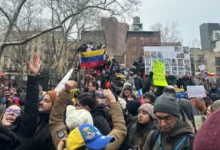Two people shot dead as Guinea protest turns bloody

Two youths were shot dead on Monday in Conakry as Guinea’s capital was paralysed on the first day of an open-ended general strike against the military government that seized power in 2021, which stands accused of stifling dissent.
A confederation of the main unions has urged public and private sectors to strike for the release of a prominent media activist, lower food prices, and an end to media censorship.
Schools, shops, markets, and roads were empty early on Monday in Conakry and hospitals only offered skeletal services as youths set up barricades on arterial thoroughfares. Sporadic clashes broke out in some outskirts and two young men were shot dead.
“They killed our son, they targeted him and shot him in the neck,” Adama Keita, a relative of an 18-year-old who was caught up in clashes with security forces, told the AFP news agency.
This was confirmed by a witness and a police source, speaking on condition of anonymity.
“I saw the motionless body of this teenager, I had tears in my eyes, and I immediately left the scene so as not to be associated with this type of crime,” the police source told AFP.
Another young man died elsewhere in similar circumstances, a doctor at the hospital where he died told AFP.
The strike comes a week after the military unexpectedly dissolved the transitional government – which had been in office since July 2022 – without providing a reason or announcing when a new one would be installed.
The military also ordered that the passports of government members be seized and their bank accounts frozen.
Protests have become rare under General Mamady Doumbouya, leader of the military government that took power in a September 2021 coup.
Doumbouya has not spoken publicly since the start of the year, despite a deadly explosion at the country’s main oil depot in December that left at least eight people dead, paralysing Guinea for several weeks.
The military leaders banned all demonstrations in 2022 and arrested several opposition leaders, civil society members, and journalists. —Aljazeera







